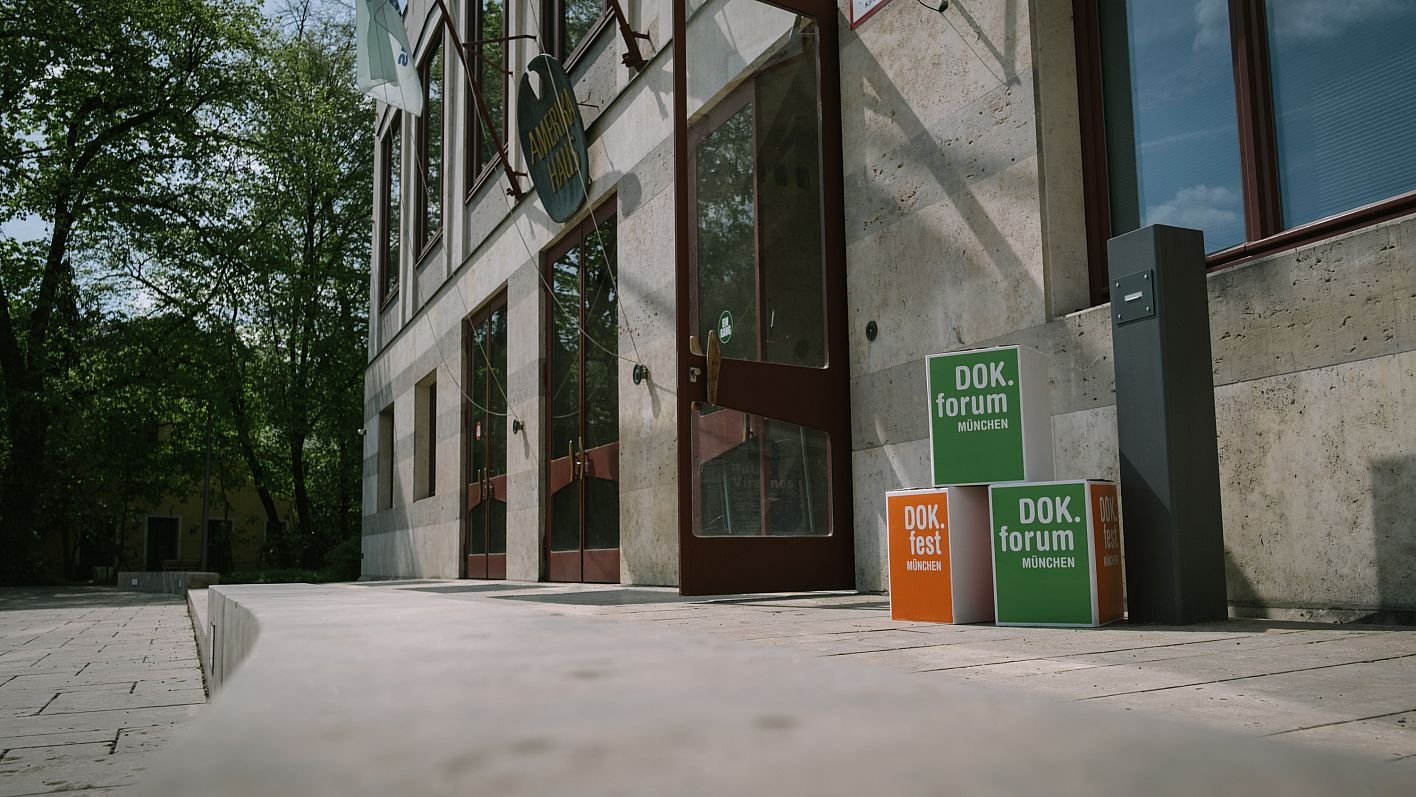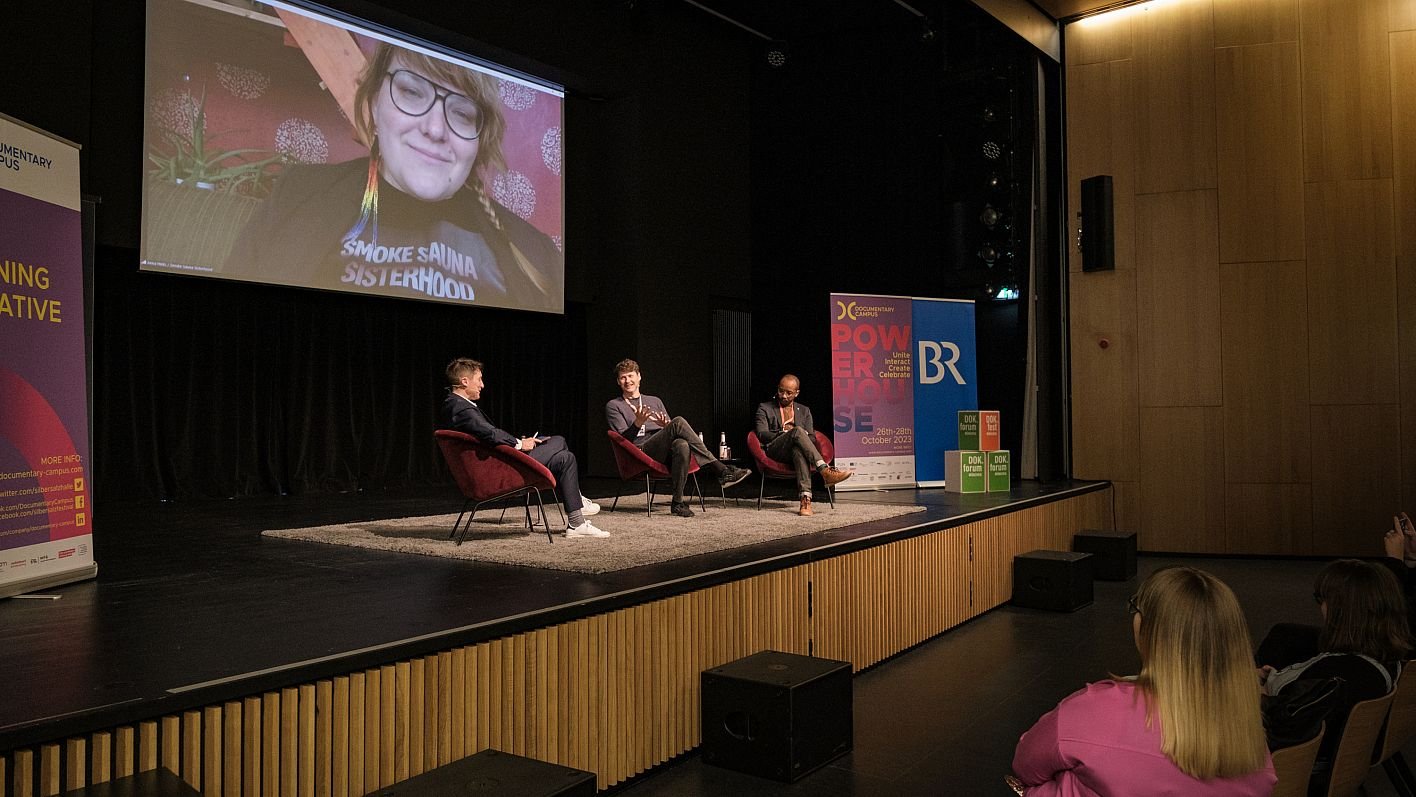DOK.forum
@ DOK.fest München
What does it take to create a documentary the audience wants to see?
How to make sure that out of the huge amount of offers available, a documentary film will be picked?
the programm:
We explored fresh perspectives through the lens of new technologies serving the broadcasting industries, discussed how to make the most of libraries, their relevance for the broadcasters as well as for emerging filmmakers, dissected monetization strategies for creators, and debated how to handle distribution and exploitation rights best in an ever changing media landscape.
© DOK.fest München
From 4-5 May 2023, the international training conference presented by Documentary Campus in partnership with DOK.forum München and in cooperation with Bayerischer Rundfunk focused on Audience Behaviour and question how to attract - or say even “seduce” - the audience and to promote your documentary. The programme spanned from analyzing facts and figures in a session of strategic reflection, to interactive working formats to put knowledge into practice and create practical approaches for broadcasters and programmers.
-
The opening talk by Peder Haugfos, Media City Bergen AS / NCE Media set the tone for the even, by giving a glimpse into the Future and where we are headed. A dynamic speaker under 30, Peder took us into the world of teenagers, and young adults, their media consumption, and the place legacy media and traditional content can (or can’t) take in their lives.
In a figures-focused session, Sarah Calderon from The Film Agency presented some documentary audience trends for strategic reflection, How is the audience changing? With challenges like audience retention and building new audiences, which key facts can help us better strategize on what it takes to create documentaries the audience wants to see? The audience could have a first glimpse into the Launch of the new Equinox Report, with figures that hadn’t been shared with the public yet.
What’s going on in the Labs? While legacy media, are trying to reshape themselves, the labs are experimenting with tech. In this inspirational fireside chat, we had a glimpse at the current developments in some of the most advanced Broadcaster's Labs. How can tech help with content production for specific audiences, and how does it transform the media ecosystem of the future? The speakers involved Uli Köppen (BR), mentioned by Amy Webb’s Trend report as one of the people to watch, and Christian Radler from the Tagesschau, offering a glimpse to international audiences into the state of the game in Germany.
The tech that will help you seduce your audience was a series of 4 short case studies and short presentations from industry experts for a thought-provoking exploration of cutting-edge technologies. Speakers included: Niels Alberg (Publikum), Sami Arpa (Largo.ai), Fiona Gillies (My Smash Media), Cæcilie Bach Kjærulf (MediaCatch)
At the end of the day we had a look at how embracing diversity can bring new perspectives for the audience, and new audiences. In a unique and poetic talk Nusrat Durrani made a compelling case for addressing the crisis of imagination in the Western film industry by tapping into talent and stories from unseen places and creating a new global mythology and a richer, more inclusive narrative of our time. Set against the backdrop of a cinematic screen the talk was a segway to a workshop on meaningful diversity and inclusion.
As documentaries gain popularity, diverse content is crucial to reaching new audiences, and ensuring meaningful inclusion on and off-screen is essential amidst the current climate of performative inclusion. Beyond Business: Meaningful Diversity and Inclusion to Reach (New) Audience was an informal, guided discussion format bringing together creatives, producers, and distributors to discuss challenges and solutions for achieving meaningful inclusion from their respective perspectives. In an interactive format, among many topics participants discussed how giving agency to storytellers gives a unique angle to the project and how adding audience design to the budgets can help dissemination. The conversation was led by Marion Schmidt (DAE), Willy Rolle (TAVMA), Mandisa Zitha (Encounters).
-
The second day was opened by the panel Is daring creativity in the way to a great audience success? The panelists, Paul Rieth (audience strategist), Anna Hints (filmmaker), Mohamed Saïd Ouma (filmmaker and festival director) discussed the constant struggle in film: commercial viability vs artistic integrity.
We also discussed; what is the future of documentary? We are in a century where everyone is documenting themselves - people are taking selfies and we are documenting - documentary will take over, and Africa is the future of cinema - stressed Mohammed.
The next format “All over the Channels - how to make your doc be seen tomorrow”? was an honest and dynamic exchange between Antione, Pola and Lara. Panelists: Pola Nathusius (ARD, BR), Lara Sword (Little Dot Studios), Antoine Schmidt-Roy (NIKITA VENTURES), preceded by ignite presentations. These experts in mediatheques, AVOD / FAST channels and digital distribution shared insights on how documentary filmmakers can navigate the crowded marketplace, find and boost the right distribution for their films: channels and platforms currently prioritizing documentaries, the pivot to branded content and narrative features, and all the latest in distribution. Experts stressed that documentaries age well, can be elevant 20 years later and still be monetized. What makes a doc seen? Quality and strategy. Quality only doesn’t work, people will not serendipitously find the film; but also if we have strategy but no quality, people will end up with product that they don’t want
Last but not least the conference ended with an Ask Me Anything About Money! session.
It gave the audience to ask experts questions about the future of the creator's economy: from the first European movie ever funded by NFTs through blockchain up to innovative social platforms, we will discover how the industry finds fresh ways to monetize. Panelists included: Jan Spielhoff (Filmchain), Giorgia Aubrey (expert on social content monetization), Miguel Faus (filmmaker, who raised and entire budget via NFTs, and entirely owns his first feature). As we discussed the future of monetization Miguel reflected on the role of legacy media and creators in a contemporary media landscape “I don’t think that a violinist playing Bach becomes DJ”.

© DOK.fest München


